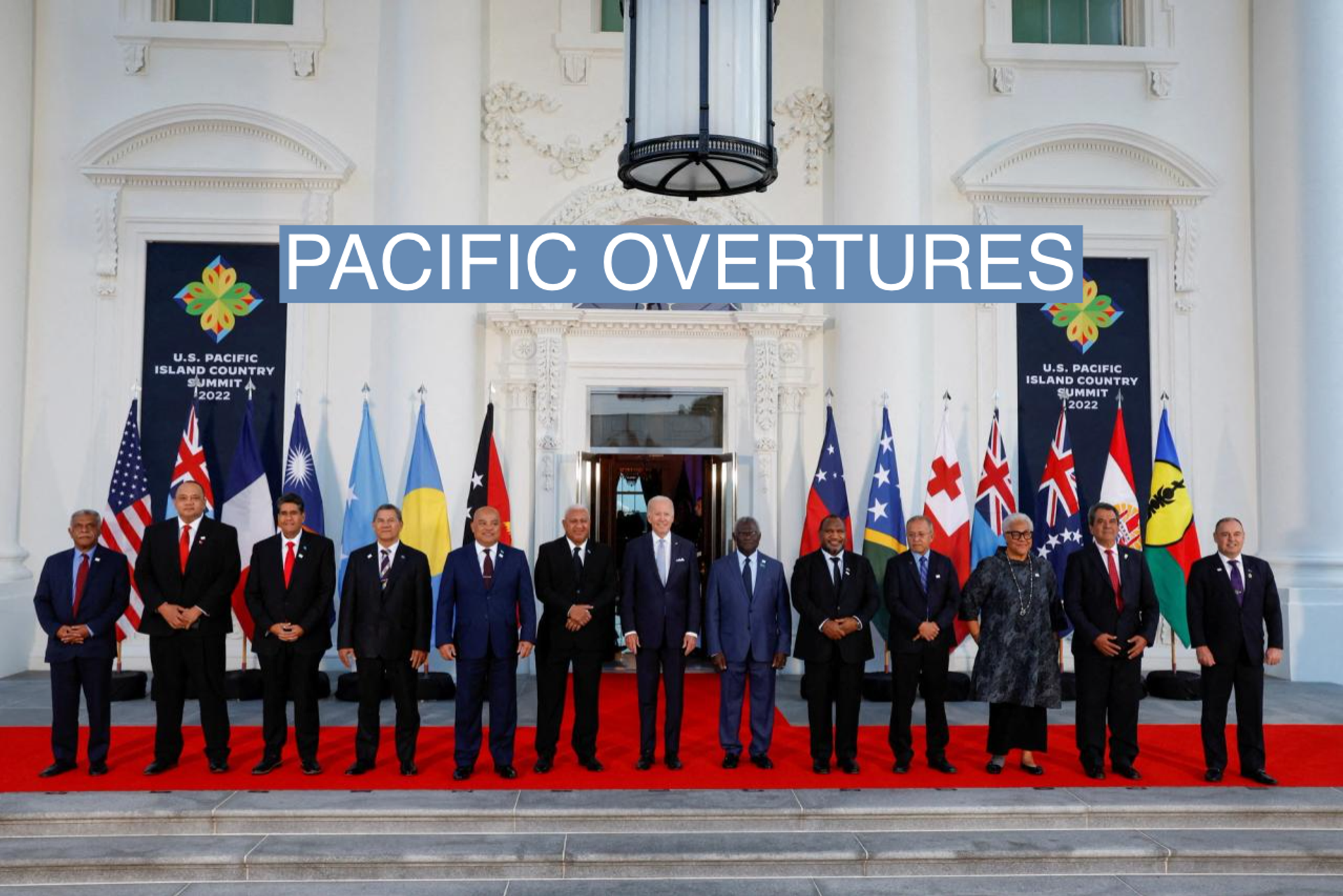The News
A World War II-era military base in the South Pacific is the latest focal point in Washington’s intensifying competition with China.
Since 2018, the U.S. and Australia have quietly been helping the government of Papua New Guinea restore a naval facility there known as Lombrum, which sits on a strategic waterway linking Australia to East Asia. American forces used the base to attack the Imperial Japanese Navy in the latter stages of World War II.
Lombrum will now tie into a set of formal security agreements that the Biden administration has been negotiating with Papua New Guinea, and which U.S. President Joe Biden is expected to sign next week in Port Moresby alongside his counterpart Papua New Guinea’s Prime Minister James Marape.
The country’s outgoing foreign minister, Justin Tkachenko, told Reuters last week that, under the new pacts, the U.S. Coast Guard will help Papua New Guinea patrol its expansive surrounding waters — which are heavily fished by Chinese vessels — using American boats and satellite imagery.
“It will be a fantastic agreement protecting our natural resources from being illegally poached and stolen, especially our fishing,” Tkachenko said.
The Lombrum base will likely be a central cog in this effort and could eventually allow visiting U.S. and Australian naval vessels to survey the region.
Jay’s view
Dusting off an obscure old naval base and promising to prowl for illegal fishing boats may not exactly seem like front page developments. But the Biden administration’s moves in Papua New Guinea are squarely aimed at checking China’s recent advances in a strategically critical region of the Pacific, where both countries are now trying to eke out an advantage by winning hearts and minds one island nation at a time.
Last year, Beijing announced a formal security agreement with the Solomon Islands, which sits around 1,000 miles to the east of the Lombrum facility, giving China a potential base to project its power into strategically important waterways. Beijing has also been discussing building ports and airfields in Pacific Island countries like Samoa, Vanuatu, and Kiribati.
In any conflict between the U.S. and China, both Papua New Guinea and the Solomon Islands could serve as key naval bases to control the flow of military and commercial traffic from Australia back into Asia — as they did during World War II. The Biden administration has flooded the wider Pacific region with military and diplomatic assets over the past two years, including opening new embassies in the Solomon Islands, Vanuatu, Kiribati, and earlier this month, Tonga.
“We’ve seen an opportunistic move by Beijing in the Pacific islands to expand their presence. Of particular concern are China’s gaining access to facilities that might have dual use, or military capabilities,” Charles Edel, a senior advisor at the Center for Strategic and International Studies, told Semafor. “There’s a real competition now for influence with these islands.”
Beyond signing the new agreements with Papua New Guinea, Biden also plans to meet with the leaders of dozens of other Pacific Island nations while in Port Moresby next week. In September, the president hosted a White House summit for may of the region’s top officials where they signed on to a partnership plan with the U.S.
Step Back
The Papua New Guinea deals are also just the latest in a slew of new initiatives Biden has recently kicked off with allies to strengthen the U.S.’s military, economic, and technological advantages in the Pacific.
Over the past month, the White House unveiled a new nuclear-defense agreement with South Korea that bolsters the countries’ ability to defend against North Korean and Chinese threats, along with a strengthened Mutual Defense Treaty with the Philippines. The latter includes four new basing agreements on islands strategically located near Taiwan.
The administration has also been working to grow an Asia-focused defense technologies coalition, known as AUKUS. It initially centers on building nuclear submarines with Australia and the U.K. but will advance to include hypersonic weapons, quantum computing technologies, and underwater vehicle production.
National Security Council spokesman John Kirby declined on Monday to comment on the expected defense agreement with Papua New Guinea, but stressed the importance of Pacific island countries to stability in the region.
Room for Disagreement
Some liberal politicians abroad, including former Australian Prime Minister Paul Keating, have been critical of AUKUS and the rush to project more Western power into the Pacific. They believe it will further militarize the region, decades after the bloody battles of the Second World War that raged there. And they say such initiatives could make a conflict with China inevitable.
The View From Beijing
Chinese state media has also voiced criticism of the U.S.’s and Australia’s moves in the region, particularly the efforts to revamp the Lombrum naval facility on Manus Island. “It is plain to any eye that Canberra is trying to turn the Pacific region into a springboard for the U.S. military adventurism, which would critically undermine the regional stability and economic development,” Global Times said in October.
Notable
- In June of 2022, Edel of CSIS wrote on the strategic threat posed by Chinese dominance over the Pacific Islands.
- Papua New Guinea has a special place in Biden’s family. Two of his uncles were based there during World War II, including one who died. He spoke of them during a 2016 trip to Australia as vice president. “One brother, Ambrose Finnegan, was lost in Papua New Guinea,” he said. “They never found the body. And the other came home with malaria and was sick off and on for the better part of his life.”
